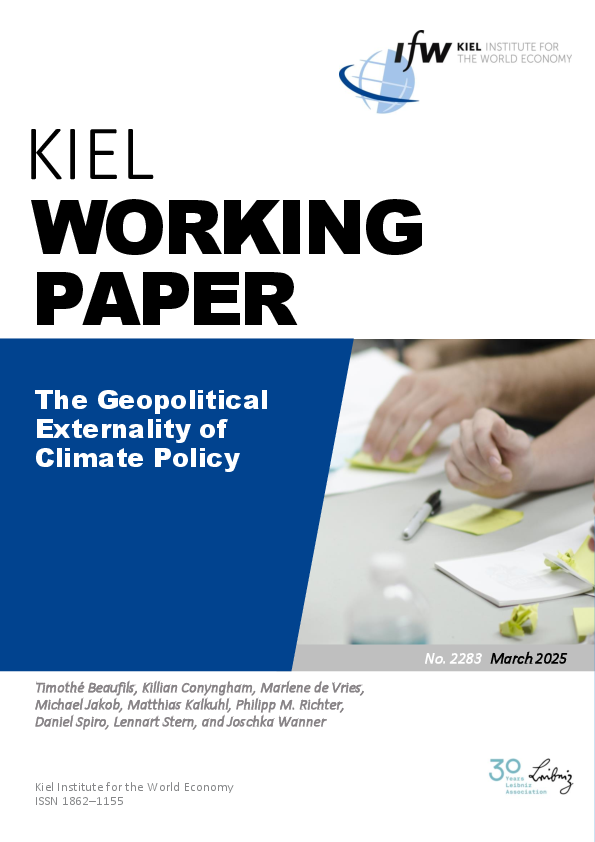Autoren
Erscheinungsdatum
JEL Classification
Schlagworte
Geoökonomie
Klima
Krieg
This paper formalizes the geopolitical externality of climate policy and estimates its plausible magnitudes. Specifically, domestic reductions in fossil fuel demand depress global prices, thereby lowering export revenues for resource-rich autocracies – many of which allocate substantial resources to military spending. As a result, climate policy reduces geopolitical and security burdens on Western democracies, offering a potential “peace dividend” as a cobenefit. Exploiting the link between the European Union’s oil consumption and the EU’s costs of the Russian war in Ukraine as a case study, we highlight the relevance of this externality. We estimate that each euro spent on oil in the EU generates geopolitical costs of 0.37 [0.01 - 4.7] euros related to Russia’s war on Ukraine. Based on our central estimate, a carbon price of 62 euros per ton of CO2 would be required to internalize these costs. Even under conservative assumptions, our analysis highlights that the geopolitical externality offers a compelling argument for strong unilateral efforts to reduce fossil fuel demand in the EU.






